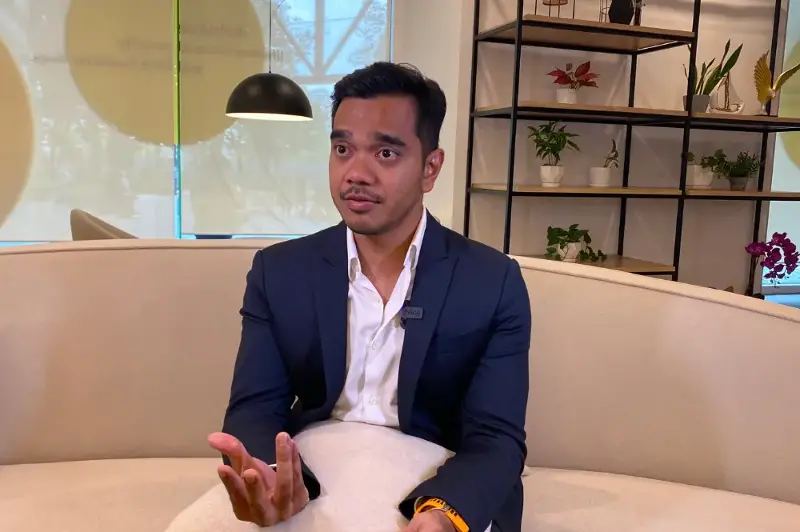
MANY people treat social media like a mirror of their lives these days, feeling the need to post updates about almost everything they do.
From getting a new job to buying a house, purchasing a car, visiting the hospital, or even when their cat gives birth, every moment is documented and posted.
These days, we often don’t need to ask our friends how they’re doing or where they’ve been.
Even after ten years without meeting, social media gives us a window into their lives through constant updates. It’s not just the general public, influencers and online personalities also share their lives through the lens of social media.
But the moment they post something, it often becomes a target for public commentary. That’s the nature of online platforms, everyone has a perspective, whether quietly held or loudly expressed.
We frequently see arguments breaking out online, where a thin line separates opinion from criticism, cynicism, or even hate. Sometimes, a single post can lead to a wave of backlash, especially when people read more into it than what was intended.
One such example is internet personality and healthcare professional Dr Shazril Shaharuddin, better known as Dr Say. Some of his posts have faced backlash, attracting waves of criticism despite his intention to share helpful or personal content.
Previously, Dr Say had uploaded a video to social media discussing issues with his domestic helper. He revealed that his home had once been broken into by two men believed to be romantically involved with the helper.
What began as a shocking incident soon escalated further, despite initially forgiving her, Dr Say later discovered that she had been physically abusive towards his child.
This revelation sparked outrage among netizens, who questioned his frequent absence from home and the safety of his child. Many criticised his parenting approach, pointing out that the parenting tips he shares online didn’t reflect his real-life actions.
In another video, Dr Say shared a detailed breakdown of his household finances, including how much his wife receives monthly. The post drew criticism, especially when he revealed he pays RM5,000 in rent each month, prompting many to question why he hasn't purchased a home.
Others were unsettled by the fact that his wife’s allowance was roughly equal to that of the maid, with some arguing it seemed disproportionately low.
Following the backlash, Dr Say publicly apologised and explained his side of the story.

Dr Say admitted that he may have overshared, particularly regarding financial matters, but said that his goal had always been transparency.
“I admit, there was a bit of oversharing. But at the time, it strikes conversations. Now, I’m trying to find a balance, still being open, but more mindful about what I share.
“Whenever I want to post something, I pause for a moment and consider whether it might be sensitive to the people of Malaysia. Usually when it comes to race, when it comes to religion, I will definitely not touch on that,” he said.
He shared that everything he went through marked the darkest period of his life since he began creating content in 2017. Still, he tried to find balance by learning from his mistakes and looking for the silver lining.
For him, that silver lining was a reminder to always be the pillar of strength for his family, to protect and stand by them, no matter what.
“It’s taught me not to take anything lightly when it comes to family,” he added.
As an influencer, Dr Say acknowledged that public figures are held accountable for their actions.
He said that when someone in the spotlight makes a mistake, it's only fair to apologise. Being in the public eye, he explained, means belonging to the public in some way—so he felt it was important to release an apology video.
For him, taking responsibility, accepting the fallout, and moving forward are all part of the process.
OVERSHARING ISN'T ALWAYS WISE
We also spoke with singer and actor Alif Satar to get his perspective on the matter.

Alif shared that navigating social media comes with responsibility. He said that while people are free to post what they like, it’s important to understand that certain things can come at a cost, and not thinking before posting can lead to unwanted consequences.
He believes it’s perfectly normal to share joyful moments, like birthdays or travels on social platforms, as that’s what social media is for. However, when it comes to more personal details, such as where you live or private family matters, he prefers to be more selective.
"As a public figure, sharing on my platform is sometimes part of the job, but oversharing isn't always wise. It's important to draw the line when it comes to deeply personal matters.
"I believe it's fine to share positivity and life updates, but when it gets too personal or becomes too much information, that's when we need to step back and reflect on what truly needs to be public,” he said when met recently.
He stressed the need to strike a balance, sharing positivity and meaningful updates is fine, but when something feels too intimate or invites unwanted attention, it’s okay to hold back, or even delete a post. The key is to think before hitting publish, because once it’s out there, it stays online.
Alif also mentioned how grateful he is that his wife shares the same approach. With their children, however, it’s a bit more complex. Given his public presence, it’s hard to avoid the spotlight—his kids often recognise him on billboards or in public spaces.
Sometimes, while driving, his children will point out billboards or posters and say, “There’s Daddy!” He often has to remind them, “This is what Daddy does for a living.”
Now that his kids have their own gadgets and use platforms like Roblox and social media, it adds another layer to managing their exposure.
As a parent, Alif believes it’s essential to control what children watch and engage with online.
He emphasised the importance of educating them, teaching not just how to speak to adults in real life, but also how to communicate respectfully in online spaces.
“It all starts at home, with parents setting the tone and being actively aware of what their children are consuming and doing online. Being involved helps ensure they don’t miss out on what their kids are experiencing or getting into,” he added.
ALL ABOUT BALANCE
Both Alif and Dr Say agreed that there should be limits to what is shared on social media. It’s all about balance, understanding the difference between sharing to spread positivity and crossing into oversharing, which can have unintended consequences.
Alif stressed that social media, when used responsibly, can be a powerful tool for good. He encouraged influencers, content creators, and everyday users to use their platforms to uplift others.
According to him, sharing kindness and positivity online can never go wrong.
“If you use your platform the correct way it will only do good to you,” he added.
Dr Say also shared a piece of advice for those who may have crossed the line on social media, just as he had. He encouraged them to return to reality, to re-centre themselves, and to pay attention to what their audience truly needs or wants.
He expressed deep gratitude to his followers, acknowledging that their continued support and honest feedback helped shape a new perspective for him.
“I’m truly thankful to all my followers who have supported me through it all. I also appreciate every piece of criticism and advice. without it, I wouldn’t be where I am today,” he said.
With both public figures sharing their thoughts, it raises a key question, how do you find the balance between enjoying your freedom on social media and knowing when to draw the line on oversharing?
